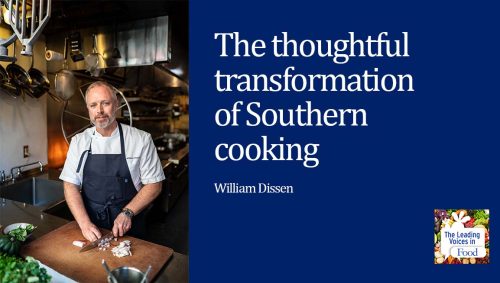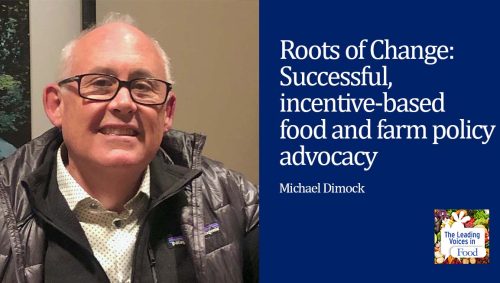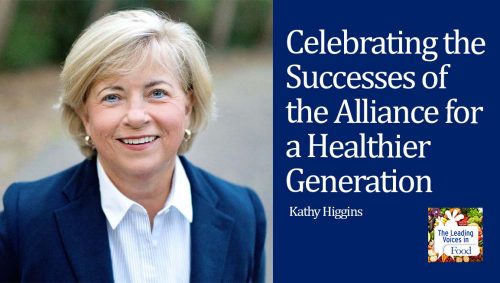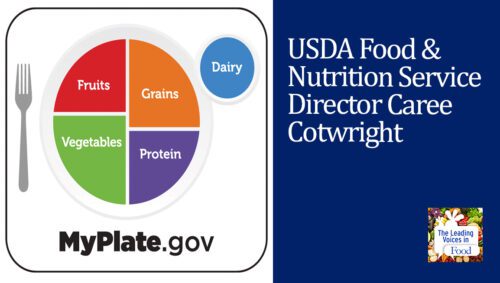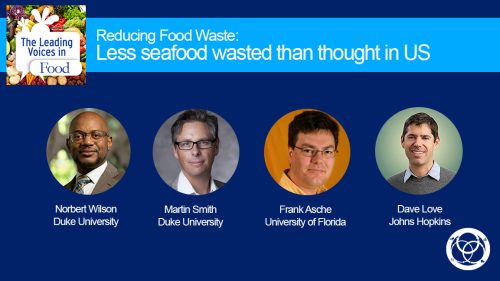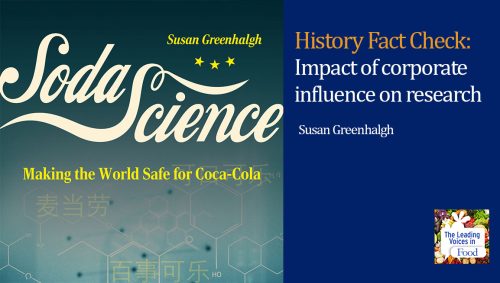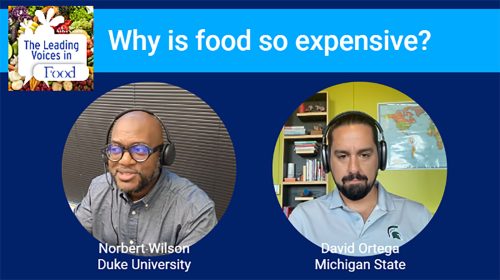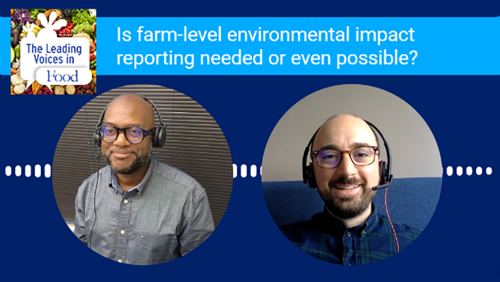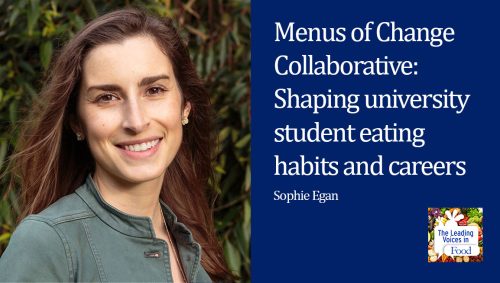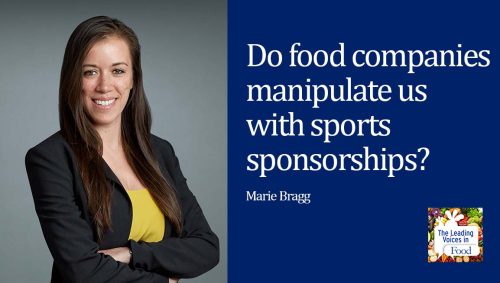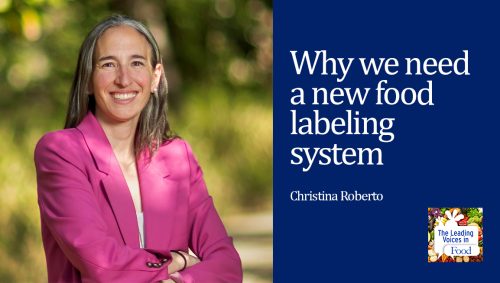The Leading Voices in Food
E181: UK Stands Firm in Ruling Against Kellogg Cereals
In July, 2022 food giant Kellogg lost a court challenge of the United Kingdom’s high sugar cereal rule. The multinational food company had argued that the UK government’s inclusion of their serials among and I quote, less healthy foods is unfair because it doesn’t take into account the milk that is usually added to the cereals. The UK court dismissed the claim and is enforcing regulations, is limiting the promotion of foods that are high in fat, salt and sugar in UK supermarkets as part of their efforts to curb obesity. Here to speak with us today about the implications of this ruling is Anna Taylor, executive director of The Food Foundation in London.

Anna Taylor has led The Food Foundation as the Executive Director since 2015. Prior to this role, she worked within the foundation’s Department for International Development. Anna has worked at multiple international organizations such as Save the Children and UNICEF, and has been at the forefront of international leadership on nutrition, supporting programs in a wide range of contexts in Africa and South Asia. Anna also previously worked for the UK Department of Health. In 2014, she was awarded the OBE for her work to address the global burden of undernutrition. She did a MSc in Human Nutrition at the London School of Hygiene and Tropical Medicine in 1994. In May 2017, Anna became a member of the London Food Board to advise the Mayor of London and the GLA on the food matters that affect Londoners. She is a Board member of Veg Power and an advisor to the International Food Policy Research Institute. She served as Chief Independent Adviser to Henry Dimbleby for the development of the National Food Strategy published in 2021.
Interview Summary
So let’s start with this. Can you explain the ruling that Kellogg objected to and then what the ruling itself makes happen?
Sure. So in the UK we’ve been having a series of measures being gradually introduced to try and prevent obesity, particularly childhood obesity. And one of those sets of regulations were around controlling the promotion of unhealthy foods in two aspects, one, controlling the position which those products hold in the supermarkets and particularly regulating the high impact parts of the shop. Things like the checkout or the isle end and controlling whether or not foods that are high in fat, sugar salt could be placed in those locations. And the second aspect was applied to a similar set of foods around whether they could be sold to customers in volume based promotion. So like multi buys where you would two get one free, that kind of idea. These regulations are being developed and they are applied to a sub series of categories of foods which contribute a lot of calories and sugar to children’s diets. So things like biscuits and crisps and pizza and chocolate and so forth, and also breakfast cereals and only products within those categories that are classified as being high fat, sugar and salt food, using what the UK has as a nutrient profile score, would be eligible for these restrictions. But, Kelloggs sued the government on the grounds that the breakfast cereals that it sold were actually served with milk, and therefore the nutrient profile score should be applied to a whole meal. IE, the cereal and the milk included, which would have tipped many breakfast cereals into not being classified as high fat, sugar and salt foods. However, the court ruled against them. They took the government to court on four counts, and all four counts were rejected by the court. And obviously the public health community were very relieved that that was the outcome, the ruling was really unequivocal in explaining the consequences of an unhealthy weight for children, what that means for their long term health and the links of course between sugar consumption and calorie consumption and the knock on impacts on obesity and excess weight. We were all delighted with the outcome.
So I’m assuming, because the industry bothered to take this to court, that they’re expecting this to harm their sales. Is there any sense of how impactful this might actually be?
The impact assessments in the UK come into this as billions, in terms of public health, savings to the health service, savings to social care costs and so forth. But I think in the UK, to some extent, we’re a little bit of an outlier; certainly across Europe, in that we buy a lot of food on promotion. About 40% of what we buy tends to be on promotion and the modeling and the work with expenditure data seems to suggest that that leads us to buy 20% more calories than we otherwise would. So this whole connection between promoting things, particularly foods which can be stored easily at home and where you think – well, I can get something extra now – and sort of in anticipation that you won’t eat it immediately. In fact, with these foods, because of their close connection to our appetite and the fact that they don’t suppress our appetite as much mean that we eat them more quickly. So we end up then buying more and the companies call this the expandability of the category. It is a food category that if you put it on promotion, you can actually expand the size of the market essentially. So it’s not surprising that companies are pushing back. We were just emerging from the pandemic, and the Department of Health and Social Care was under immense pressure during the pandemic. We had seen a huge spike in childhood obesity in the UK through the first year of the pandemic. So this was a strategic move by Kellogg’s, but I think there wasn’t a lot of support for it in the media – perhaps this is the best way to say it.
This is heartening on a number of levels. First that the original regulation was passed. Then second that it prevailed in the court and third that the projections of its impact are so great. Another way that things like this can sometimes be historic is that they open the doors to other such action. I’m thinking, for example, of in the United States when New York city was the first jurisdiction to require calories on restaurant menus. A lot of people, including me and my colleagues, fought hard for that – not knowing really what the impact would be on people’s dietary choices. But thinking it was historic because it was a sign that a City Health Department, in this case in New York, expressed jurisdiction over the long term consequences of food. Not just the short term food safety type things that health departments usually get involved in but the chronic conditions produced by long term consumption of things like sugar, fat and salt. So it was historically important in that sense. And I’m wondering if this ruling and the way the court came out on this might be similar in some ways, that it could open the door to other things in the future that could be equally or even more important.
The decisions around these kinds of regulations in the UK are made through the political process, government, parliament and so forth. I think we haven’t yet seen a lot of evidence sort of referencing back to the court ruling in making a case for even stronger measures to be introduced in the policy frame. In fact, we’re seeing at the moment, that this is reflection of the sort of politics in the UK at the moment. We’ve actually seen this week that our new prime minister, who came into power the week before last, has requested a review of a whole slew of obesity prevention measures that have been introduced in the UK. Including these ones around promotions. In fact, the regulations on promotions that were due to be introduced on multi buys have been already delayed a year on the grounds of the cost of living crisis. I think it still feels here in the UK that these measures are fragile, that the narratives around nanny state and the role of government intervention in the food system, the sort of private realm is still very politically contentious. It’s become a kind of wedge issue if you like, for a much bigger debate about the size of government and the role of the state, food has become a sort of way into that much bigger political conversation. I think we’ll know in time how significant the ruling was. It would’ve been extremely significant if you had gone the other way, because you can imagine, for example, you might say, well, I sell chocolate spread. You normally eat it with bread. And therefore my chocolate spread ceases to become an unhealthy product. And furthermore, things like advertising restrictions and so forth will no longer apply to it. You can imagine it opens a floodgate of potential precedence to the use of the nutrient profile model to classify foods as being less healthy or more healthy. So that would’ve been incredibly damaging and would I think have had a very detrimental set of sort of long term consequences in terms of how you design policy around the food environment. So I think we’ve yet to see the real positive impact of it but I think it’s probably very fair to say that had it been a different ruling, we’d be already seeing much more severe negative effects of it.
Thanks for that context, it’s very helpful especially seeing it in the broader political context, which is exactly what’s happening in our country as well. So let me ask this, so efforts by many parties are usually needed to bring about outcomes like this. And I’m wondering in the case of this action in the UK, what happened either visibly or behind the scenes to make this possible?
There’s a huge amount of work that goes on, both in the public sphere with the public around, I suppose trying to create a bigger political space for government action in obesity prevention. To some extent, that work really got ahead of steam in the lead up to the introduction of the sugary drinks tax that came in the UK. And, around which there was a sort of major documentary which Jamie Oliver did and which was sort of tipping point I think for public engagement and a recognition by parents that sugar was really hidden everywhere. They felt in some ways manipulated by the system and unaware of the ways in which sugar was appearing everywhere. Suddenly it got a kind of potency in the public realm, which I hadn’t had to date. We are very steeped in now, in the conversation about, well, how do we make sure that these measures are protected, that they’re not rolled back and indeed that the government feels emboldened to take further steps. That’s everything from huge amounts of engagement with parliamentarians right across the political sphere. I imagine in many places as I said before in the UK, this is an issue that people very instinctively think they don’t want the government telling them what to eat. Nobody does. They see these kinds of interventions as if it were the government telling them what they need to eat. And so we’re doing huge amounts of work with MPs around how we frame these issues in the context of long term health of the nation and the economic productivity and so forth. There’s work with parliamentarians, there’s work with the public. We do quite a lot of polling work to understand how the public are feeling on issues and tracking that on an ongoing basis, huge amounts of work with the media trying to make sure that there’s a sort of drum beat of evidence and stories and real life experiences, which bring attention to the issue. The political economy around these issues is really, really difficult. It’s hard for government to act in these areas. The implementation of some of these regulations is tough. Trying to define an isle end in a supermarket becomes the business of teams of civil servants. You know, this is not easy stuff to actually implement. The potential workarounds by businesses are so massive and loopholes and unintended consequences, it’s a difficult area to also actually design the right types of regulations. I think we’re making progress but it always feels sort of two steps forward, one step back, that kind of sense of stuttering progress really. And if you look at it in a long term frame, then sure, we are on the right track but the urgency of the issues are now so intense that we’re just not moving fast enough.
Thanks for that background. So just as the final question, what additional policies are priority for you right now?
At the moment, we’re focusing on trying to get the commitments which the government have made not get rolled back. So included in this are, as well as promotions, regulations around advertising of junk food up to 9:00 PM on television broadcast. So sort of blanket ban on advertising of junk food up until nine o’clock in the evening on TV and online. So that’s at the moment planned, but delayed. We don’t want it to be ditched. We are also putting a lot of energy at the moment into trying to get a set of measures in place to protect the very poorest households who are really struggling in the context of the cost of living crisis. We’ve got rising levels of food insecurity. And we know at the moment that the food system really if you’ve got very little money, your options for eating healthily are narrowed even further. And so we’re trying to get the government to invest in expanding things like free school meals and preschool programs so that children from disadvantaged backgrounds at least have a guarantee of one decent meal a day.

